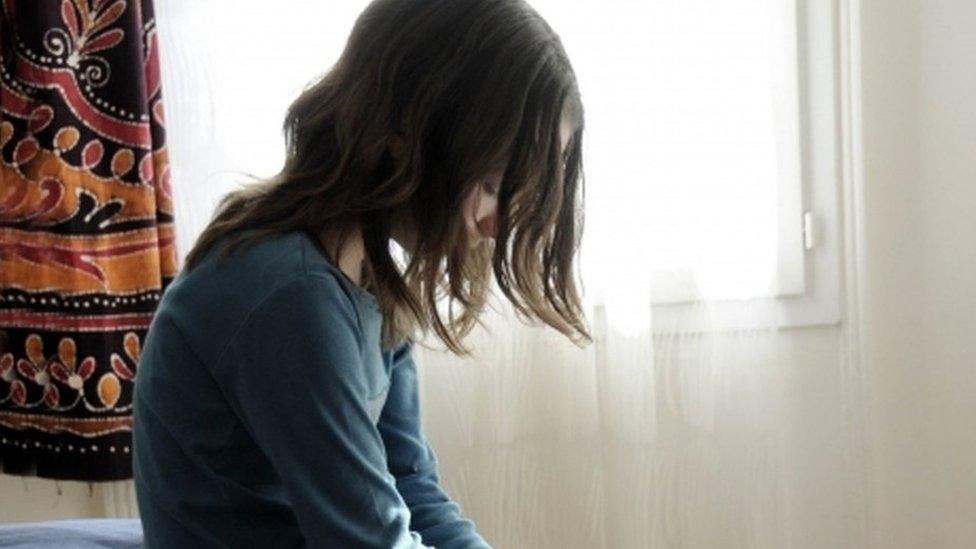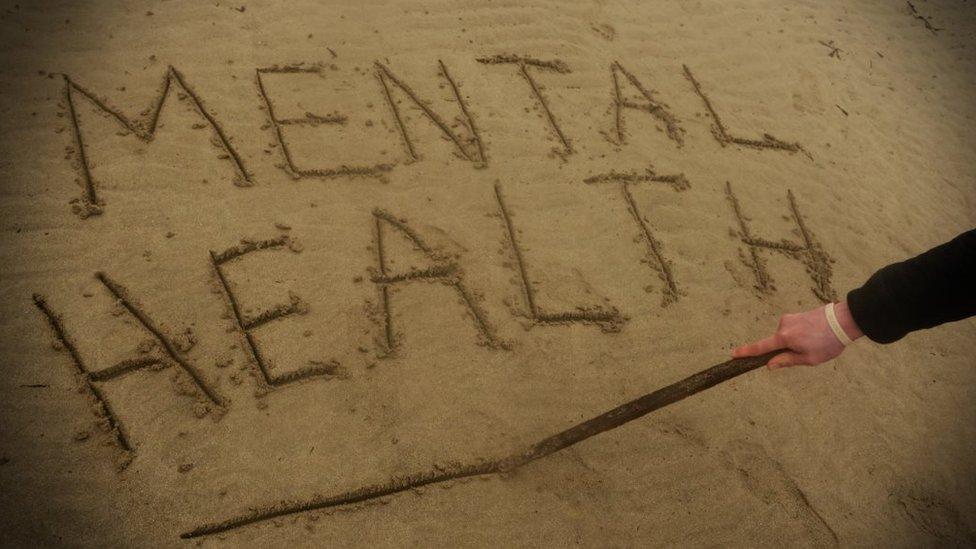New mental health strategy unveiled by Scottish government
- Published

There will be a focus on prevention and early intervention
The Scottish government has unveiled its new strategy on mental health, committing to spend more than £300m to tackle it in the next five years.
Mental Health Minister Maureen Watt said her ambition was for mental and physical illnesses to achieve "parity of esteem" in the way they are treated.
Ms Watt told MSPs she would work hard to tackle poverty as the "biggest driver" of poor mental health.
There are 40 actions in the Scottish government's new strategy.
They include:
Increasing mental health workforce in A&E, GP practices, police stations and prisons
Reviewing counselling and guidance services in schools
Reforming adults with incapacity legislation so it complies with best international standards
Establishing a bi-annual forum of mental health experts to help guide the implementation
The strategy will also focus on prevention and early intervention and a social security system based on "dignity, fairness and respect".
Rejected referrals
Ms Watt told the Scottish Parliament: "As Scotland's first dedicated minister for mental health, I have been driven by a simple principle - that we must prevent and treat mental health problems with the same commitment and drive as we do physical health.
"This guiding ambition is at the heart of the new Mental Health Strategy, working to intervene as early as possible to prevent issues developing while ensuring anyone needs only ask once to get the help they need fast.
"This strategy has been fundamentally shaped by the feedback from organisations and service users. Their views have demonstrated passion and the need for change."
The minister also said the Scottish government had made considerable progress in improving access to specialist Child and Adolescent Mental Health Services. An audit of rejected referrals will be commissioned.
Recent NHS figures revealed that more than 100 children who began receiving specialist mental health care in the last three months of 2016 had waited more than a year to get help.
'Real impact'
The Mental Welfare Commission for Scotland said the government's strategy was "strong on ambition and vision" but needed more clarity on how the actions will be delivered.
Colin McKay, chief executive of the commission, said: "To ensure the strategy has a real impact on people's lives, the next step is to bring clarity as to how its actions will be delivered, and by whom.
"It is also vital to have measurable outcomes. There must be a shared and effective process of monitoring the strategy, and whether it is effective.
"We are committed to working with government, and with others, to take this forward."
The Scottish Association for Mental Health (SAMH) welcomed the action on young people's mental health but said the overall strategy did not go far enough.
The charity's chief executive Billy Watson said: "We are pleased to see that some of our recommendations have been accepted and areas of focus in the plan are to be welcomed.
"However, we are disappointed it lacks the ambition and investment that Scotland deserves, especially for children and young people."
The Scottish Conservatives described the new strategy as a "missed opportunity"
'Scale of ambition'
The party's mental health spokesman, Miles Briggs, said: "Like many of the organisations involved in delivering mental health services and supporting those with mental health problems, I do not believe this strategy will make the transformative change we all want to see.
"This mental health strategy simply doesn't live up to the promises the first minister has made on rights, resources and reforms."
Scottish Labour said the strategy was "nowhere near the scale of ambition we need for improving mental health outcomes in Scotland".
The party's inequalities spokeswoman Monica Lennon said: "It's disappointing that the SNP government has ignored Scottish Labour's plan for investment in school-based counselling and wraparound early intervention support in schools - because we know that half of all mental health problems begin before the age of 15."
- Published14 February 2017

- Published6 September 2016

- Published15 February 2016
